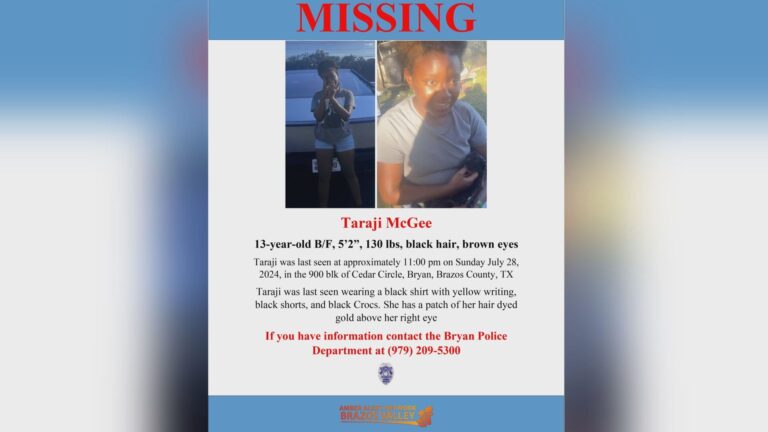In new complaint, Texas women say delayed care due to abortion laws endangered their fertility
“In new complaint, Texas women say delayed care due to abortion laws endangered their fertility” was first published by The Texas Tribune, a nonprofit, nonpartisan media organization that informs Texans — and engages with them — about public policy, politics, government and statewide issues.
Two women have filed federal complaints against Texas hospitals they say refused to treat their ectopic pregnancies, leading both women to lose their fallopian tubes and endanger their future fertility.
Texas law allows doctors to terminate ectopic pregnancies, a condition in which the fertilized egg implants in the fallopian tubes, instead of the uterus. Ectopic pregnancies are always non-viable and can quickly become life-threatening if left untreated.
Despite these protections, these women say they were turned away from two separate hospitals that refused to treat them. The complaint alleges that the doctors and hospitals are so fearful of the state’s abortion laws, which carry penalties of up to life in prison when violated, that they are hesitating to perform even protected abortions.
The complaints were filed with the U.S. Department of Health and Human Services, under the Emergency Medical Treatment and Labor Act, or EMTALA, a federal statute that requires hospitals to provide stabilizing medical care to anyone who shows up. That rule has long been interpreted to include medically necessary abortions, which has run up against state bans, including in Texas.
Typically, federal EMTALA complaints are investigated by state health agencies, but the Center for Reproductive Rights, which filed the complaint, is asking for it to instead be handled by the federal Centers for Medicare and Medicaid Services, or CMS.
“CMS should not rely solely on a state agency’s assessment of the facts in reaching its determination because of Texas state officials’ hostility toward interpreting EMTALA as requiring hospitals to provide pregnancy termination to pregnant patients experiencing emergency medical conditions,” they wrote in the complaints.
The U.S. Supreme Court earlier this year declined to say that Idaho’s abortion ban trumps the EMTALA requirement, but a federal appeals court in New Orleans has found that Texas hospitals cannot be required under EMTALA to provide life-saving abortions.
Similar diagnoses, similar results
Kyleigh Thurman says in the complaint that she went to Ascension Seton Williamson Hospital in Round Rock, north of Austin, with a tubal ectopic pregnancy.
She says the hospital initially discharged her without treating the ectopic pregnancy, but she returned three days later with vaginal bleeding and worsening symptoms. Despite her doctor’s orders, the hospital refused to give her methotrexate, a common treatment that stops an ectopic pregnancy from continuing to develop.
“Infuriated, Ms. Thurman’s OB-GYN met Ms. Thurman at Ascension Williamson to plead with the medical staff to give her methotrexate,” the complaint says. They eventually agreed. But it was too late; the ectopic pregnancy had grown too large, and ruptured. Thurman nearly bled to death and had to have her right fallopian tube removed.
A spokesperson for Ascension declined to discuss the specifics of the case, but said in a statement that they are “committed to providing high-quality care to all who seek our services.”
Kelsie Norris-De La Cruz had a similar experience at Texas Health Arlington Memorial Hospital, outside Dallas. An emergency room physician diagnosed her with a tubal ectopic pregnancy and said she should get an injection of methotrexate or have surgery to remove the pregnancy.
She chose surgery, but once the on-call OB/GYNs arrived, the complaint alleges, the hospital refused to treat her and told her to come back in 48 hours.
“Ms. Norris-De La Cruz’s mother asked if the hospital’s refusal to provide care had anything to do with Texas’s abortion bans but received no response,” the complaint says. “As the conversation became more heated, the OB/GYN confirmed it was possible that Ms. Norris-De La Cruz could rupture over the next 48 hours and subsequently stormed out of the room.”
Texas Health did not immediately respond to request for comment.
Norris-De La Cruz eventually found an OB/GYN through a friend who agreed to perform an emergency surgery to remove the ectopic pregnancy. By then, the mass had grown so large that it required also removing her right fallopian tube and 75% of her right ovary.
“I ended up losing half of my fertility and if I was made to wait any longer, it’s very likely I would have died,” Norris-De La Cruz said in a statement. “These bans are making it nearly impossible to get basic emergency healthcare. So, I’m filing this complaint because women like me deserve justice and accountability from those that hurt us. Texas state officials can’t keep ignoring us. We can’t let them.”
This article originally appeared in The Texas Tribune at https://www.texastribune.org/2024/08/12/texas-abortion-law-ectopic-pregnancies/.
The Texas Tribune is a member-supported, nonpartisan newsroom informing and engaging Texans on state politics and policy. Learn more at texastribune.org.







